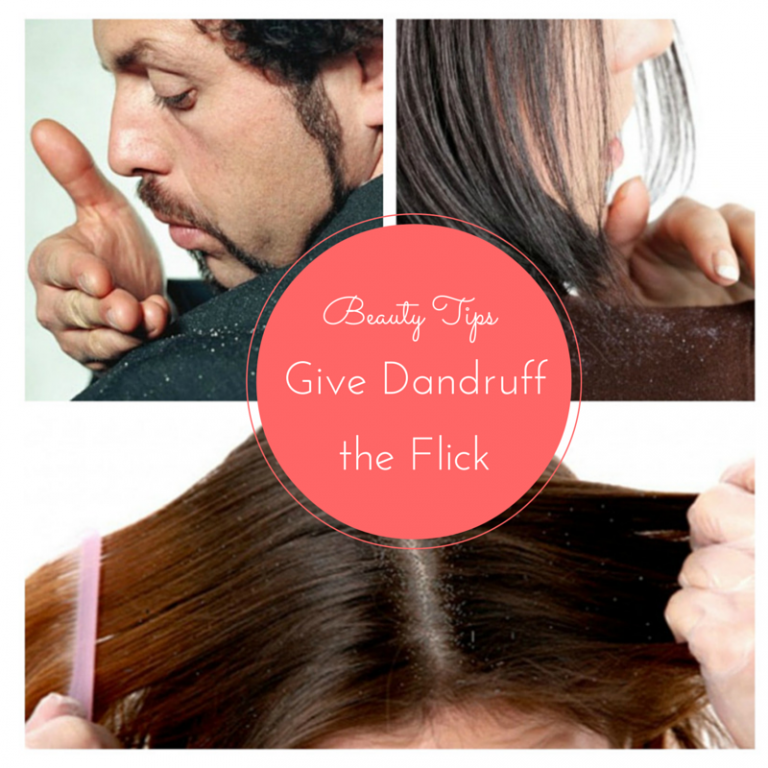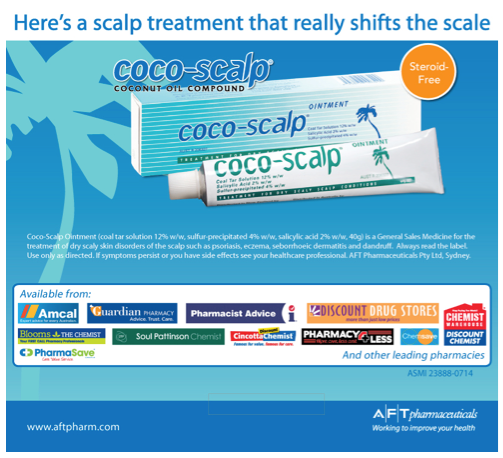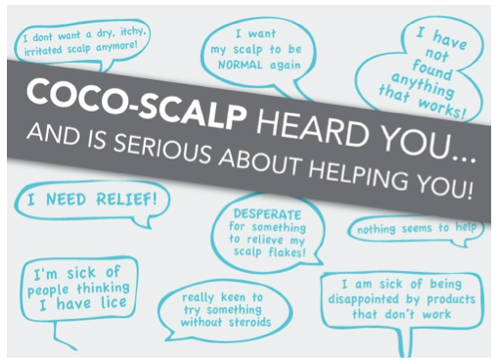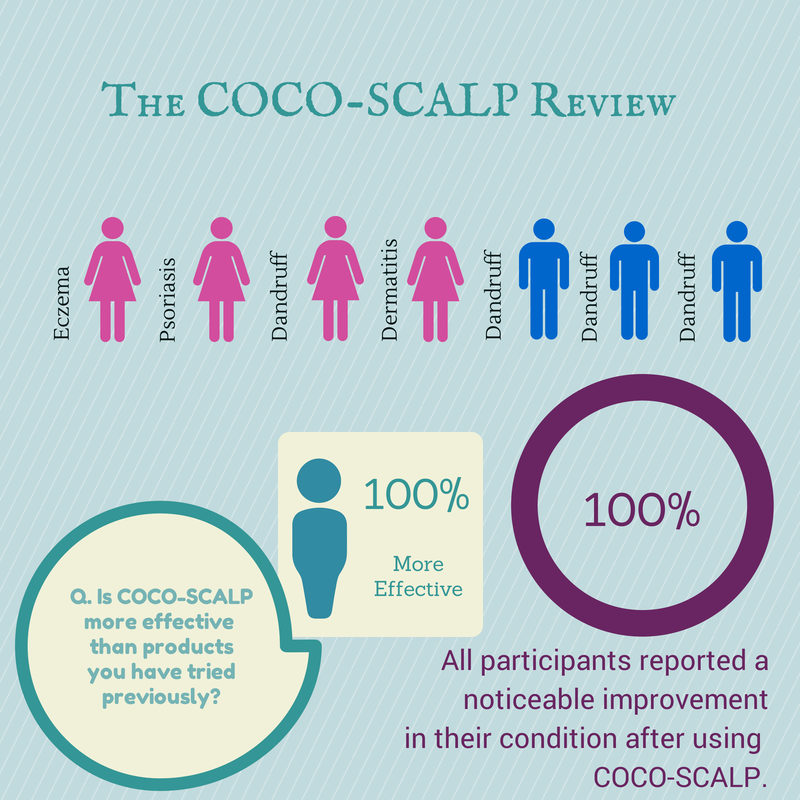Beauty Tips: Getting to the Root of Your Dandruff Problem


Sponsored post
Beauty Tips: Getting to the Root of Your Dandruff Problem
So we all know what Dandruff is, right? It’s those embarrassing white or yellow flakes of dry skin that can be seen on the scalp, the hair shaft and on the collar and shoulders of sufferers. In fact, with as many as half of the population estimated to be affected by this very common skin condition at some point, it’s fairly likely that you’ve experienced it yourself.
Whilst mild dandruff can come and go with little impact, dealing with cases of severe dandruff can be much more tricky, not to mention costly and frustrating as you search for the right treatment to manage your symptoms.
The Causes of Dandruff
The reason why treating dandruff may be such a difficult areas could in part be due to the fact that there can be a wide variety of causes. Having a good understanding of the cause of your dandruff can help you choose the right management techniques.
We’ll explain more about this later, but first let’s late a look at the causes of dandruff:
Dry Skin
Dry skin is one of the most common causes of mild dandruff.
Malassezia
Malassezia is a yeast-like fungus that lives on the scalps of most adult. However, in some people it can cause irritation to the scalp, causing an excess of cells to grow. These skin cells die, form into white flakes and drop from the hair.
Contact Dermatitis
Sensitivity to certain ingredients in hair care products can also cause a red itchy scalp and dry skin on the scalp.
Sebhorreic Dermatitis
Sebhorreic Dermatitis is characterised by red skin, greasy flaky white or yellowish scales, soreness and itching.
Scalp Psoriasis
Scalp Psoriasis causes red patches with silvery scales which can cause a thick crust on the scalp. Like Sebhorreic Dermatitis is can also be very sore and itchy for sufferers.
Scalp Eczema
Scalp Eczema, like Sebhorreic Dermatitis and Psoriasis causes red patches of skin on the scalp that are itchy and sore, however eczema on the scalp can also form blisters and may weep watery fluid. Lesions caused by scalp eczema are also susceptible to becoming infected by bacteria and virus’.
How do you know for sure what condition is causing your dandruff? Only a dermatologist can uncover the real cause and prescribe the best course of action. This is especially important when a medical condition like eczema or psoriasis is to blame. If anti- dandruff shampoos and conditioners aren’t helping, get a professional diagnosis and advice on treatment from a specialist — and say goodbye to your flakes.
Tips for Managing Your Dandruff
As we mentioned previously, managing severe dandruff can be a tiresome, frustrating, embarrassing and costly affair – but getting to the root of the cause of your problem can be especially helpful if you suffer from one of the three skin conditions mentioned above: Sebhorreic Dermatitis, Psoriais and Eczema.
For example whilst those with Psoriasis are recommended to keep the skin on the scalp moisturised, those with Sebhorreic Dermatitis need to avoid oil and anything that will cause them to produce even more sebum. Whilst those with Sebhorreic Dermatitis are encouraged to keep the scalp clean and wash their hair regularly, those with Eczema are better off avoiding hot water as much as possible. Following advice for wrong skin condition can leave you with worse dandruff instead of less!
For this reason we recommend that you read the Tips that best suit your particular skin condition.
Tips for Managing Sebhorreic Dermatitis
Tips for Managing Scalp Psoriais
Tips for Managing Scalp Eczema
However there are a few steps that everyone can take no matter what the cause of the dandruff, to help minimise it.
Avoid Scratching
Itching, scratching and picking the affected area, whilst difficult to resist, is crucial. Bleeding may occur when patches are removed forcibly, exposing the area to all those horrible germs that often lurk unseen beneath your fingernails.
How Often to Wash Your Hair?
There is conflicting advice in this area – some professional bodies advise washing your hair regularly to avoid oil and skin cell build up and some say washing your hair too much causes excess oil (sebum) secretion and potential cell build-up. Only you will know what’s right for you however we said previously that it’s common for dandruff sufferers to have dry skin but you may not think you do have dry skin if you are producing excess oil (sebum) and you hair is lank by the end of the day! You might want to try changing how often you wash your hair to see if washing less or more often makes a difference. (This will take patience and willpower!)
The Final Rinse
When you have finished washing your hair, rinse out with cold or at least tepid water. Cold water will close the cuticles of the hair and minimise skin pores which will help maintain normal oil secretion plus help protect your scalp from dirt particles or bacteria that may be contributing to the dandruff cause. Your hair will be softer, sleeker and shinier too!
Avoid Heat Styling Your Hair
Using your hairdryer or straightener can dry out your scalp further – so let your hair dry naturally, or limit your use of heat styling appliances.
Brush your Hair Often
A common cause to mild dandruff is not enough hair brushing! Regular brushing actually helps distribute oil through the hair and aids shedding skin from continuously drying up. The more you brush your hair, the more moisture your scalp will be able to retain.
Mild dandruff is one thing and can usually be controlled with the above steps and a good anti-dandruff shampoo regime…but severe dandruff may require a treatment that will break down the Scale.
COCO-SCALP is a unique ointment formulation, (not a shampoo) that is designed to be applied to the affected areas of the scalp and left on for one hour. This allows maximum medicine contact time for COCO-SCALP to break down the scale, and treat the skin below. The special scalp formulation of salicylic acid (to remove scale) and Coconut Oil (to moisturise, soothe and condition the skin and hair) provides the relief that sufferers are searching for.
Suitable for treating scalp conditions ranging from severe dandruff to Scalp Psoriasis, Eczema and Seborrheic Dermatitis, COCO-SCALP has been developed by Dermatologists and is steroid free.
It’s not a shampoo. It’s not a steroid. It just treats scale.
For treatment of dandruff apply COCO-SCALP daily for 3-7 days until improvement has been achieved. Thereafter intermittent repeated applications may be necessary to maintain improvement.
That’s just an hour a day for the first 3 -7 days and then regular maintenance as needed.
Whilst an hour treatment time may sound a little too long to fit into a busy schedule, it really just requires a little planning. What other ‘treatment or repair’ routines do you fit into your week? Maybe a mani-pedi, a good book in a bubble bath, a face masks, or exercise? Prioritise taking care of your scalp condition in the same way – you could even combine the treatment with one of your other activities. There is no reason why you can’t take your hour me-time snuggled in a comfy chair with a book, or watch your favourite TV show with the COCOSCALP treatment on.
Editors note: For those of you caring for significant others suffering from Severe Dandruff…my husband has Scalp Dermatitis and usually applies COCO-SCALP treatment before mowing the lawn, or settling down to watch his favourite sport on TV, then takes a shower to wash it out. That’s as much planning as it takes!
A short while ago seven members of the Mum Media Group community suffering from a range of scaly scalp conditions put COCO-SCALP to the test, with an overwhelmingly positive outcome.
All of the reviewers noticed an improvement in their condition after using COCO-SCALP, and 100% of them found it more effective than any treatments they had previously tried.
You can read the full results and comments resulting from the trials here:
COCO-SCALP has been awarded the official MMG (Mum Media Group) stamp of approval – and given the results from our reviewers we happily endorse it – particularly if it means spreading the word and helping more of you find relief from this very uncomfortable condition.

Coco-Scalp Ointment (coal tar solution 12% w/w, sulfur-precipitated 4% w/w, salicylic acid 2% w/w, 40g) is a General Sales Medicine for the treatment of dry scaly skin disorders of the scalp such as psoriasis, eczema, seborrhoeic dermatitis and dandruff. Always read the label. Use only as directed. If symptoms persist or you have side effects see your healthcare professional. AFT Pharmaceuticals Pty Ltd, Sydney.
Always read the label & use strictly as directed. If symptoms persist see your healthcare professional.
You can find COCO-SCALP in leading pharmacies nationally – ask for it by name.














